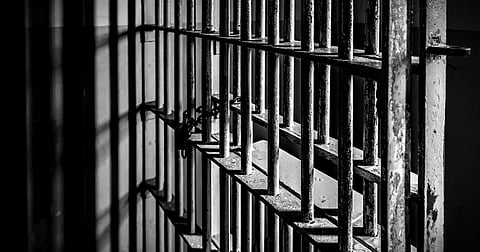

The denial of bail, coupled with the negligence of the jail staff and paucity of health and sanitation facilities, means that the incarceration of the Bhima Koregaon accused has taken on a murderous turn, PUDR noted.
—–
ON September 10, Deepika Tandon and Shahana Bhattarcharya, Secretaries of the People's Union for Democratic Rights ('PUDR'), an independent organisation committed to legally defend civil liberties and democratic rights, in a statement, demanded the provision of proper health facilities and immediate medical attention to jail inmates, the protection of the rights of political prisoners, and the release of all undertrials in the Bhima Koregaon case, amongst other demands.
On September 8, trade unionist, activist and academic Vernon Gonsalves, one of the 15 undertrials in the Bhima Koregaon case, lodged in the Anda Cell of Taloja Central Jail, was diagnosed with dengue and likely pneumonia. Gonsalves, aged 65 years, had been suffering from fever since August 30, but it took an appeal from his lawyer and wife Susan Abraham, and the intervention of a special National Investigation Agency ('NIA') court for the Taloja Jail authorities to shift him to the private JJ Hospital for treatment.
The statement noted, "The fact that he was immediately put on oxygen support at the hospital, points to the apathy of the Jail authorities regarding the health of prisoners lodged in their custody."
In a statement titled 'Stop denying political prisoners the right to healthcare in jails', the PUDR also highlights that this incident marked the two-month anniversary of the special court rejecting human rights activist and journalist Gautam Navlakha's petition for a mosquito net (Navlakha is also one of the undertrials in the Bhima Koregaon case). On May 20, the jail authorities confiscated the mosquito nets of some inmates housed in the Anda cell.
Several people, including cultural activist and performer Sagar Gorkhe, another of the Bhima Koregaon undertrials, had gone on a hunger strike, expressing apprehension about contracting malaria and dengue, as Taloja is infested by mosquitos.
"The abysmal jail facilities and hostility of jail staff added to these fears which have all come true," the PUDR statement said. PUDR has also demanded decongestion of the Taloja jail.
The statement, highlighting the present health condition of Gonsalves, whose hospitalisation was delayed, underlines the vindictive intent of the jail authorities, the NIA and the special NIA courts toward the Bhima Koregaon accused.
PUDR said that while the court set aside Gautam Navlakha's plea for restitution of his mosquito net, the jail authorities did not oppose the special court granting the dismissed former policeman Sunil Mane, also lodged in Taloja jail, permission to use a mosquito net, further underlining the active bias against political prisoners.
The pattern of medical negligence, the statement pointed out, as a facet of State oppression against political prisoners is too familiar in cases like that of journalist Siddique Kappan, also accused under the Unlawful Activities (Prevention) Act, 1967 ('UAPA'), who was shifted to the All India Institute of Medical Sciences following a Supreme Court order and diagnosed with COVID-19, five days after falling ill.
"The Solicitor General and Mathura Jail authorities had vehemently opposed bail despite 50 confirmed Covid cases in the over-crowded jail where Kappan was lodged", the PUDR statement notes.
The NIA has consistently opposed bail, including medical and temporary bail, for the Bhima Koregaon accused on the grounds that the UAPA charges against them are grave, and the court has accepted this logic (most recently in the rejection of Navlakha's bail petition on September 5 on the same grounds), despite the case not having come to trial more than four years after the first set of arrests.
Without a trial in sight, the anxiety of an endless wait, the impossibility of bail, tribal rights activist and Jesuit priest Fr. Stan Swamy's death in custody within a year of his arrest in the Bhima Koregaon matter, and the debilitating health of another co-accused in the case, activist and poet P. Varavara Rao, incarceration has become a punishment, as per the statement.
The statement noted that previous fatalities like the death of Fr. Swamy and more recently of Pandu Narote, a tribal agricultural worker convicted in 2017 under UAPA, who died of swine flu on August 25 in Nagpur Hospital, tell an appallingly familiar story of delayed treatment, not informing the lawyers and families about prisoners' grievous health ailments, and under-equipped medical facilities in prisons.
Political prisoners' right to life, whether as an undertrial when yet not proven guilty, or as a convict serving their sentence as per law, is almost non-existent, the PUDR statement further observes.
It further notes that three applications under the Right to Information Act by PUDR to Taloja Jail authorities seeking information on the number of deaths in Taloja, and the status of health, sanitation and medical infrastructure there, have received no reply.
In this context, though Gonsalves and his co-accused have been forced to approach the courts to get medical attention, paradoxically, the cases have brought to light the despicable lack of medical facilities for prisoners, the statement concludes. It ends by raising a question about the unknown many with no access to the courts who have suffered and even died for want of medical aid inside prisons.
PUDR has also demanded the prosecution of the former Taloja Superintendent, Kaustabh Kurlekar, holding him responsible for Fr. Swany's death, as well as an inquiry into medical negligence by the Taloja jail staff.